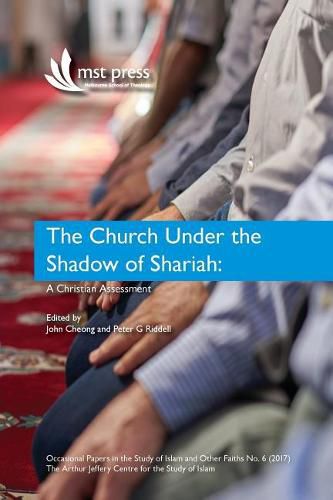Readings Newsletter
Become a Readings Member to make your shopping experience even easier.
Sign in or sign up for free!
You’re not far away from qualifying for FREE standard shipping within Australia
You’ve qualified for FREE standard shipping within Australia
The cart is loading…






This title is printed to order. This book may have been self-published. If so, we cannot guarantee the quality of the content. In the main most books will have gone through the editing process however some may not. We therefore suggest that you be aware of this before ordering this book. If in doubt check either the author or publisher’s details as we are unable to accept any returns unless they are faulty. Please contact us if you have any questions.
In the 21st century, the expression, Shariah - as in Shariah law and Shariah finance or Islamic banking - is heard with increasing frequency (Hefner 2011, Sloane-White 2017). It is important to be clear on just what Shariah is, particularly since some Muslim activists are increasingly promoting it around the world.1
The prolific Western scholar of Islamic law, Joseph Schacht, once described the Shariah as the core and kernel of Islam itself (Schacht, 1974:392). The concept appears obliquely in the Qur'an at verse 45:18: Then We put thee on the (right) Way of Religion [Shariah]: so follow thou that (Way), and follow not the desires of those who know not . This passage underpins the common Muslim claim that Shariah law is divinely sourced, fixed and immutable, a gift to humanity from Allah, designed to show Muslims how to live and govern correctly.
Of course, there are different schools of legal interpretation. By the middle of the eighth century A.D., several had emerged in the Muslim Abbasid Empire. Of these, four survived among majority Sunni Muslims: the Hanafite, Malikite, Shafi'ite, and Hanbalite schools, the last being the most conservative/literalist. Further schools emerged among the minority Shiite Muslims, and several are in play today, as explained in Anthony McRoy’s paper on The Iranian Church under the Shadow of Shi'a Shariah .
Even a cursory look at Shariah legal codes shows that they are marked with inequality and excess. Consider first, inequality; in Shariah courts, all jurists, court officials and the judge must be Muslims; non-Muslims are not allowed to take part in any way. No woman may become a judge (Solomon & Wakeling, 2009: 7).
$9.00 standard shipping within Australia
FREE standard shipping within Australia for orders over $100.00
Express & International shipping calculated at checkout
This title is printed to order. This book may have been self-published. If so, we cannot guarantee the quality of the content. In the main most books will have gone through the editing process however some may not. We therefore suggest that you be aware of this before ordering this book. If in doubt check either the author or publisher’s details as we are unable to accept any returns unless they are faulty. Please contact us if you have any questions.
In the 21st century, the expression, Shariah - as in Shariah law and Shariah finance or Islamic banking - is heard with increasing frequency (Hefner 2011, Sloane-White 2017). It is important to be clear on just what Shariah is, particularly since some Muslim activists are increasingly promoting it around the world.1
The prolific Western scholar of Islamic law, Joseph Schacht, once described the Shariah as the core and kernel of Islam itself (Schacht, 1974:392). The concept appears obliquely in the Qur'an at verse 45:18: Then We put thee on the (right) Way of Religion [Shariah]: so follow thou that (Way), and follow not the desires of those who know not . This passage underpins the common Muslim claim that Shariah law is divinely sourced, fixed and immutable, a gift to humanity from Allah, designed to show Muslims how to live and govern correctly.
Of course, there are different schools of legal interpretation. By the middle of the eighth century A.D., several had emerged in the Muslim Abbasid Empire. Of these, four survived among majority Sunni Muslims: the Hanafite, Malikite, Shafi'ite, and Hanbalite schools, the last being the most conservative/literalist. Further schools emerged among the minority Shiite Muslims, and several are in play today, as explained in Anthony McRoy’s paper on The Iranian Church under the Shadow of Shi'a Shariah .
Even a cursory look at Shariah legal codes shows that they are marked with inequality and excess. Consider first, inequality; in Shariah courts, all jurists, court officials and the judge must be Muslims; non-Muslims are not allowed to take part in any way. No woman may become a judge (Solomon & Wakeling, 2009: 7).